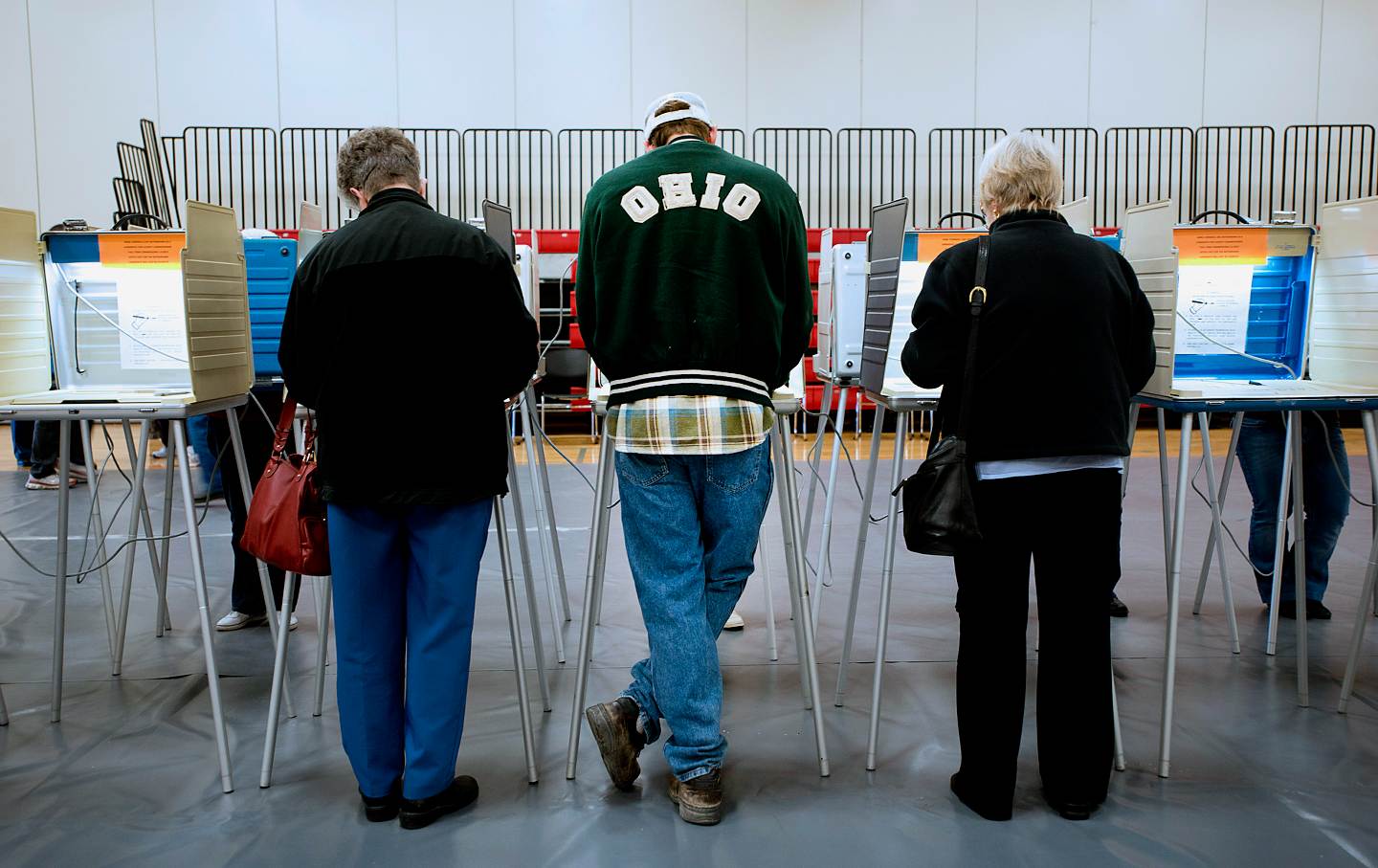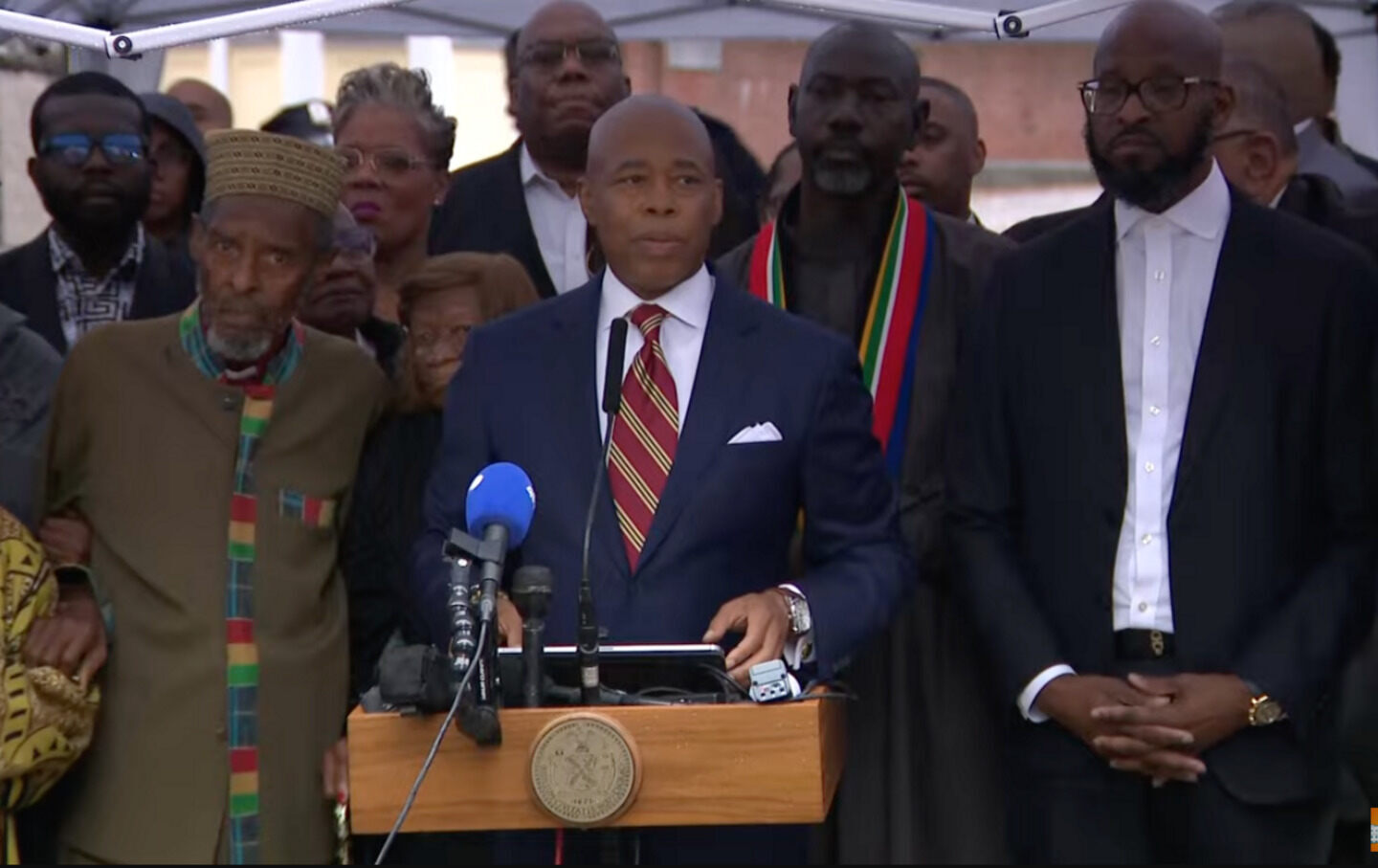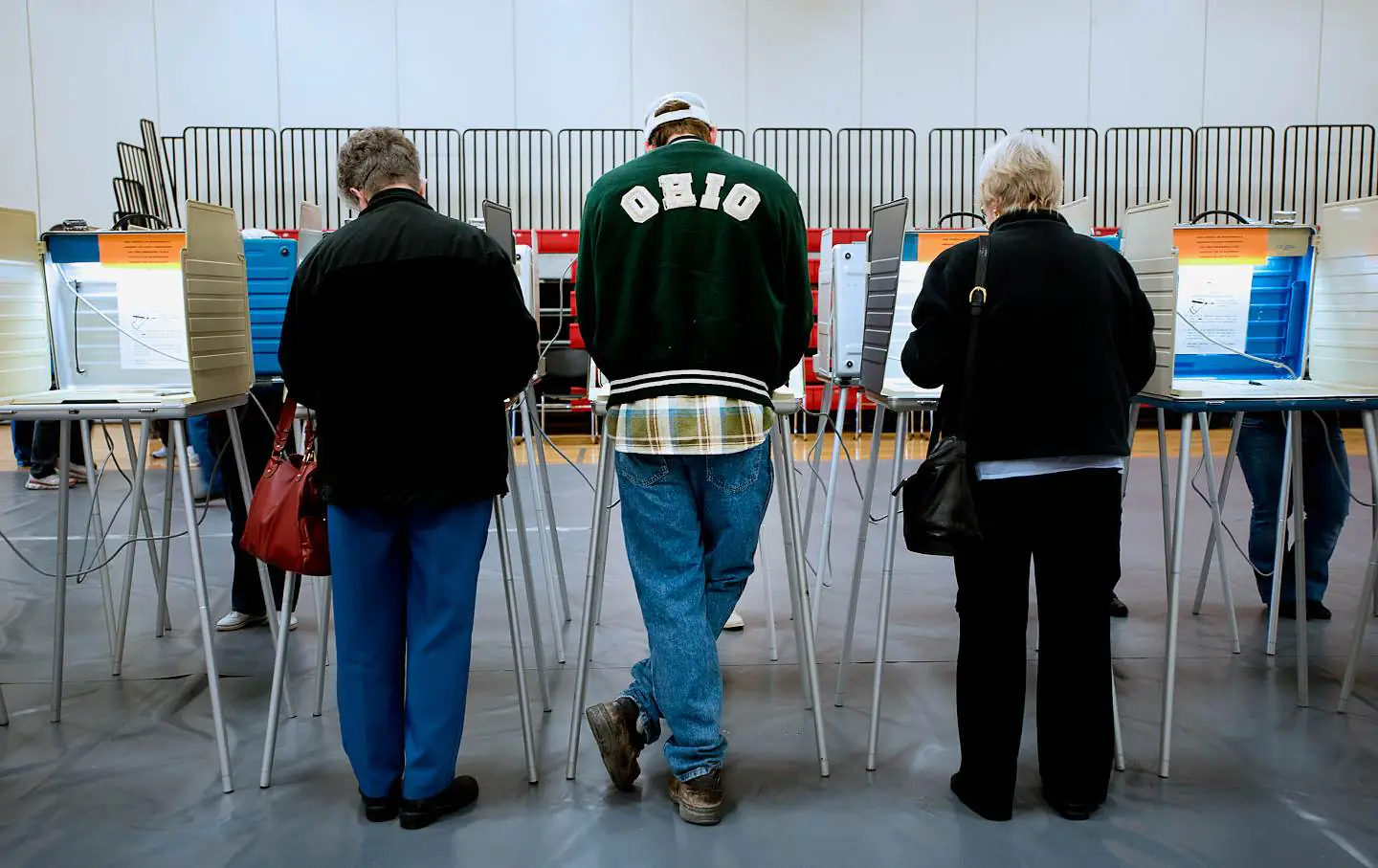[ad_1]
Policy
/
StudentNation
/
September 30, 2024
Ohio is considered one of the most amazing states in the country, but #1 may be the solution to the solution.

Voters cast their ballots at the Alexander High School polling station in Albany, Ohio.
(Ty Wright/Getty)
A proposed constitutional amendment on Ohio’s 2024 ballot would permanently change the way congressional districts are drawn in the state.
Proposal No. 1 would create a staff of 15 Citizens Redistribution Commission— to draw district maps — made up of Democrats, Republicans and independents. Current and former politicians, political party officials and lobbyists would be barred from serving on the commission, and attempts to favor districts over a political party or legislator would be unconstitutional.
“Ohioans have lived with partisan gerrymandering for more than 80 years,” said the Rev. Terry Williams, an ordained minister. organized by Faith Choice Ohiois a religious advocacy group that supports abortion rights. “Both parties have governed our state at different times and in different ways, and every time a map is drawn, one thing always happens: our politicians are less accountable to those they are supposed to serve.”
Its members are current redeployment committee appointed by the governor, the secretary of state and the auditor, as well as the majority and minority leaders of the state house. Only two of them are Democrats.
In comparison, question 1 would require an open application procedure for committee membership. A screening committee of two Republican and two Democratic retired judges, each selected by Ohio legislative members of the voting commission, reviews and selects the applicants.
While there are currently no polls of what Ohio voters think about Question 1, other suggestions show that people in the state are more liberal when it comes to voting on ballot initiatives. For example, vote from here Baldwin Wallace University shows that 58 percent of voters supported enshrining abortion rights in the state constitution and 57 percent supported legalizing recreational marijuana. In Ohio, only a simple majority, just over 50 percent of voters, is needed to pass the amendments.
Current number

Ohio is one of the “most gerrymandered states” in the country, along with Texas, Louisiana and Arkansas. Research a Brennan Center found that 9 million Ohioans — about 77 percent of the state’s population — live in districts where there are no electoral contests when state representatives are elected. Half of them did not include a primary competition. Redistricting maps created by the Ohio Restricting Commission have been declared unconstitutional and rejected by the state’s Supreme Court on several occasions.
No. 1 was filed with the Secretary of State’s office more than 700,000 signatures— almost 60 percent more than needed to get on the state ballot — after receiving support from Citizens Not Politicians, the American Civil Liberties Union, the League of Women Voters and labor organizations such as AFSCME and SEIU.
Rev. Williams singled out the anti-abortion measures as an example of how Ohio’s political leaders are ignoring voters. “At Faith Choice Ohio, we know that Ohioans do not support abortion bans, unnecessary restrictions on abortion providers, and laws that make life difficult for abortion seekers.” If Issue 1 is approved, the Reverend and his colleagues “hope to see an Ohio where the Legislature stops harassing abortion seekers and starts supporting them,” he said. “We believe fairness matters and gerrymandering is unholy.”
The Ohio GOP, which controls the state House, the state Supreme Court and the governor’s office, opposes the amendment. In March, the press secretary a Ohio Senate Majority Caucus He called it an “extremely complicated, cunning and radical system” that “sets up a citizen’s committee in place of your elected representative.” Governor Mike DeWine argued that the proposal would actually make gerrymandering worse. “If passed, this amendment would actually move Ohio to a system that requires — that forces — map agencies to create gerrymandered districts.”
The recommended ballot language Issue 1 — drafted by Republican Secretary of State Frank LaRose and approved by Ohio’s ballot committee — outraged Citizens Not Politicians, who argued that the language paints the amendment in a negative light. The amendment, according to that language, would “create an appointed redistricting commission that is not elected or removed by state voters, repealing constitutional protections against gerrymandering approved by nearly three-quarters of Ohio voters,” and “would create a new, taxpayer-funded, appointed commission tasked with overseeing state legislative and congressional district boundaries.”
“I think the language was the reason why you shouldn’t vote for it,” said the Democratic state senator Paula Hicks-Hudsonsaid a member of the Ohio voting commission The Nation. “The language did not meet constitutional standards.” Hicks-Hudson and another Democratic panel member, Rep. Terrence Upchurch, voted against the language and ultimately submitted information to the Ohio Supreme Court, which waived it. “We got the language on the day of the meeting,” Sen. Hicks-Hudson said, adding that “there was no give and take” between her, Upchurch and the panel’s majority Republican members. “The ballot is just one casualty of gerrymandering in Ohio.”
Despite these concerns, the Ohio Supreme Court approved the language is only slightly revised. “I don’t agree with their decision,” Sen. Hicks-Hudson said, but ultimately hopes “that people who think that citizens not being politicians is a good thing for this state will go out and educate themselves and others. the value of redrawing these maps.”
As Republicans pass bills restricting abortion and gender-affirming care, many in Ohio see No. 1 as the only way to counter the state’s shift toward extremism. The extreme politics that are being brought to the statehouse is a direct result of gerrymandering,” said CJ Wilson, a 22-year regional organizer. A common cause is Ohio. “Once you stop worrying about losing the election, you can do whatever you want.”
Wilson also talked about gerrymandering in places like New Yorkand other liberal states, believe that this practice is inappropriate everywhere. “It disenfranchises voters, especially minority voters,” Wilson explained, calling it a nationwide problem. “It’s a bipartisan issue, state by state, and it’s a bipartisan solution,” Wilson said in No. 1. “This is the only sure way to keep politicians in check.”
“I was very young at the time, but Ohio was a swing state,” Wilson said. “It’s one of the reddest today.” For Wilson, being voted No. 1 is a great opportunity to make his voice heard in 2024 and beyond. “Even if you don’t want to vote for any politician,” Wilson said. “It’s time to get out and vote.”
Popular
“Swipe to the bottom left to see more authors”Slide your finger →
We need your support
What is at stake this November is the future of our democracy. Yet Nation Readers know that the fight for justice, fairness and peace does not stop in November. Change does not happen overnight. We need sustainable, fearless journalism to champion bold ideas, expose corruption, protect our democracy, protect our physical rights, promote peace and protect the environment.
This month we are asking you to make a monthly donation The Nationindependent journalism. If you’ve read this far, I know you appreciate our journalism, which speaks truth to power in a way that corporate-owned media never can. The most effective way to support The Nation by becoming a monthly donor; this provides us with a reliable funding base.
In the coming months, our writers will work to bring you what you need to know – from where John Nichols in the election Elie Mystal about justice and injustice, Chris Lehmannreport from inside the belt, Joan Walsh with insightful political analysis, Jeet Heer‘s crackling mind, and Amy Littlefield on the front lines of the fight for abortion access. For as little as $10 a month, you can empower our dedicated writers, editors and fact-checkers to report in-depth on today’s most critical issues.
Set up a monthly recurring donation today and join the dedicated community of readers who make our journalism possible for the long term. For nearly 160 years, The Nation stood for truth and justice – could you help us get by with 160 more?
further,
Katrina vanden Heuvel
editorial director and publisher, The Nation
More from here The Nation

Back in 2020, the Republican vice-presidential candidate argued that Trump had “completely failed to deliver on his economic populism.”
John Nichols

Democratic candidates have organizational advantages in states like Arizona and Nevada, which may draw more voters than the polls suggest.
Sasha Abramsky

While the mayor maintains his innocence, the indictment says he knew what he was doing when he accepted campaign money and plane tickets from Turkish citizens.
Elie Mystal

The Southern District brought charges against the mayor of New York. But anyone who says they’re certain about their trajectory for the next six months is lying to you.
Ross Barkan

